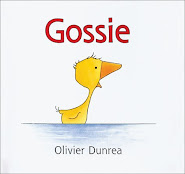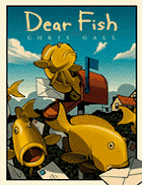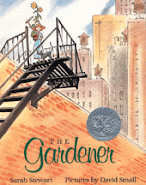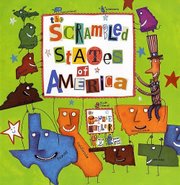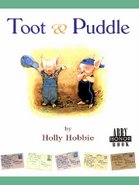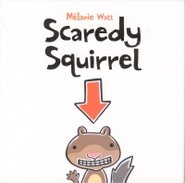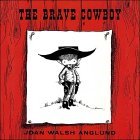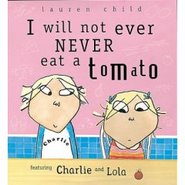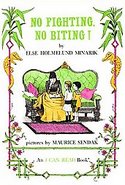
8.31.2007
New People and Places

8.30.2007
Nursing & Spit Ups

8.29.2007
Books, Books, Books - Two
8.28.2007
Biting
My son has a friend (both are almost 2 1/2 years old) who has bitten him twice. It doesn't seem like his mom does anything for a consequence beside maybe a short "timeout". Should I say anything? How do you handle this type of situation? I am really at a loss!
One of the worst moments was when my child was bitten in the cheek - such a deep bite that he had bruises for several weeks where each of the teeth connected. It's the worst. So, I know. I know. But sometimes being bitten can turn a child into a biter - monkey see, monkey do. So, here's both sides of the coin...
To the bitten: I would say, the next few playdates, never leave your son's side. See what's triggering the biting and you stop him before it happens. If it happens more than once you can always use this phrase, "I think us being here is hard on Ben, so we'll play again another time." Of course you will be thinking something different, but by leaving right after it happens, it sends the message to the child -- friends go when I bite.
I would also talk to the mom, in a non confrontational way. Try one of these questions "What's the best way to help a child stop biting, I'm worried about it with my child." -- sometimes asking the person with the problem for advice helps bring it to their attention - its also nice to feel like we are in this together instead of finger pointing. OR "You'll never believe but my child keeps being bitten (you don't have to mention its only their child doing the biting) he's turning into a pin cushion for teeth. You'll have to help me watch him - do you think its because he doesn't know how to play with other children?" Again, bringing it to the attention and asking them to help look will help them catch their child faster and hopefully prevent it.
But, in the end, if its too much, you can just postpone playdates for awhile. Biting is usually a phase that will go away. But, never be afraid to talk about it. I think the more practice we get with situations like this will help us one day when our then teenager crashes the neighbors car.
To the biter: Make sure that you don't just send your child to timeout - if a bite has happened - help them see the pain or tears they caused. Really help them see the consequence of how sad they make someone. Do it quickly, firmly, and then give all your attention to the child who was bitten. You don't want to reward the child inadvertently by giving them too much attention. A lot of bad patterns can be changed quickly, but I have never found a quick solution. It takes a couple weeks of constantly reminding the child not to bite (because they are so little it takes repetition and constant vigilance to make it stick).
You can also try pushing their lower teeth down if you catch them in the act.
Good luck!
Painting: The Weeders by Jules Breton
8.27.2007
Toy Rotation

8.21.2007
Books, Books, Books - One
Use your books as backdrops - literally prop open the book. And then use the little people or dolls or puppets and have them act in front of the book. So, if your little people can visit to the dump if you are reading I Stink or pretend to borrow earrings to wear from Fancy Nancy. Sometimes a book is most fun when it doesn't even feel like a book - its better, because its a place!
8.20.2007
Back to School

Painting: Mother and Child by George Romney
8.14.2007
Saying Goodbye
Time to leave the park, or a friend's house, or anything fun can sometimes be tricky. Here are a few suggestions other than the five minute warning (which is the great standard and works perfectly for some children)...
1. Say Goodbye - pick them up say, "It's time to say goodbye to the sand." Then tell them to say, "Goodbye sand" and then you say, "Goodbye sand" and quickly start looking around the park saying goodbye to literally, everything! Goodbye slide, fence, pink sand bucket, swings, Lindsay, Jose, the leaves...the longer the list the better - because saying goodbye becomes the game. And then when they are already in your arms, its easier to get them into their carseat or stroller.
2. Practice Makes Perfect - when you give them the five minute warning, also give them an expectation ie. "We are going to leave in five minutes, when I say, 'Its time to leave' I want you to say, 'Okay, mom!' Will you practice saying it one time for me right now." For some reason if they have said "OK" already - it is so much easier. And they actually understand the expectation. And its great, when your child says, "OK" so cheerfully - you almost forget you just asked them to!
3. Whisper - You can apply this to both the above or try it on its own. It always seems better to ask in a whisper - for some reason it resonated more clearly - the contrast against the loud friend's house or park. They can actually hear it - when the problem can be they are so busy they don't hear.
4. Back Door - Ok, so sometimes you need to plan a get away, a back door approach, if you will. Bring something special in the car or stroller they don't know about - a toy they haven't played with for awhile. A treat, something that means something of great import. Then, instead of saying goodbye or saying that its time to go, tell them that its time to start something new - time to go play with the new Dora toy or whatever. So, this is a little bit of linguistics and a lot of planning ahead. But, if its really hard it might be worth it.
5. Paci/Blankey - I say use these things to your advantage when they are young. Its a bit of the same as above - but basically don't let them have their pacifier or blanket until its time to go. And use the words, "Its time to go check on Pacifier" - and you say the goodbyes.
What else works?
Painting: Considering a Swim by Lindsay Dawson
8.10.2007
my philosophy
Pacifier Pains

8.08.2007
Power of Placebo

8.06.2007
Red, Red, Red
 Someone recently asked about creative ideas - here's another one. I did this awhile ago - but I repeat it with different colors, different letters, and even shapes.
Someone recently asked about creative ideas - here's another one. I did this awhile ago - but I repeat it with different colors, different letters, and even shapes.As the kick off to red week...
- For breakfast we had strawberries and raspberries in milk.
- For lunch we had red jello, apples, and jam sandwiches.
- For dinner we had pizza with tomato sauce and tomatoes on top.
- We played with red model magic.
- We painted red mixed-medium masterpieces (red crayon, red chalk, red pencils and paint).
- On our drive we shouted out every red thing we saw - red lights, stop signs, red Hummers, red signs, painted curbs, and the cherry on top - a blazing red fire truck.
- As we read, we hunted for red on each page - a Where's Waldoish with the color red. You get the picture - its just a way to say the word "red," over and over until your little one really gets it - its easy and fairly preparation free.
Painting: Yellow, Red, Red by Mark Rothko
8.04.2007
Fists Full of Hair

Sketch: Leda by Leonardo DaVinci
8.02.2007
Creative Play

Do you have a book of ideas or something that you use to think creatively? I'm always trying to think of things outside the pool, park, bubbles, playdoh, reading time etc.
No. Not really. But, a long time ago (pre-kids) I asked every mother I knew to make a list of their favorite activities. Things they really did - specifics. I compiled it and sorted it by age group and inside/outside activities.
So, putting food coloring in a spray bottle and decorating the snow was perfect - at the time. But now I'm in California and the snow thing isn't really helpful. So I need to compile a new one (and you can to -- wherever you are). It was really fun to see what different people wrote ie...
- giving all junk mail to the kids to play post office
- playing "restaurant" and writing your kids order down for lunch
- recording your voice (or Grandma's voice from far away) reading a story and letting them play it over and over
- letting them use teaspoons to measure water and put it in a bigger bowl
- drawing with glue and adding sand
- doing pictures by tearing paper only
There are also some good books - I usually just read them when I'm at the book store and store away an idea or two. But The Toddler's Busy Book and others by Trish Kuffner I like. They just seem more doable, I mean who really turns a potato into a clock?!
Oh, and I love the Rainy Day Activity Jar I read about on the Stitching Barn - but you could just use it always!
Painting: The Blind Girl by Sir John Everett Millais






